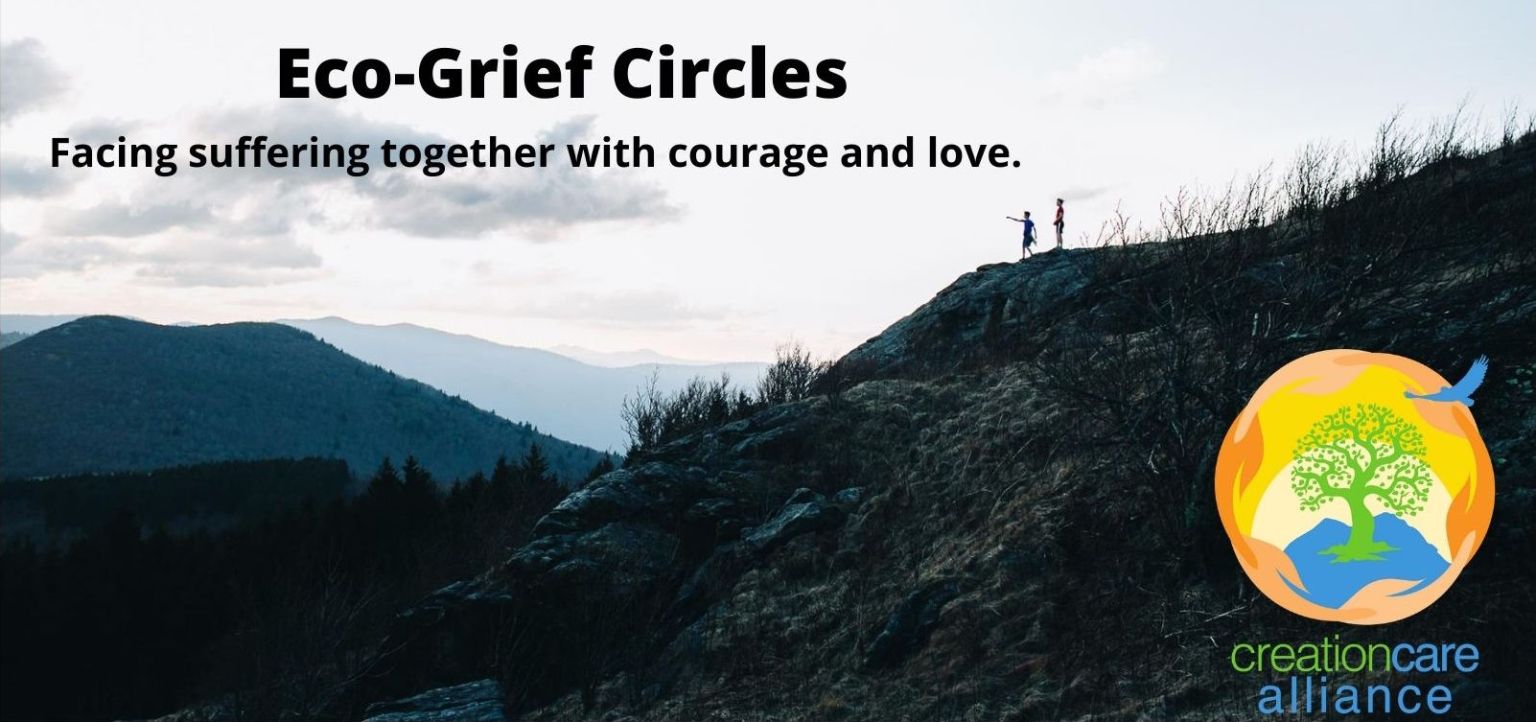Blessed Are Those Who Mourn: Congregational Support for Eco-Grief

Faith communities have a complicated history when it comes to mental health and wholeness. In some ways, faith communities have failed by ignoring mental health challenges that are present within our communities and among clergy people. Oftentimes the stigma that has been placed upon the shoulders of those who are experiencing a variety of temporary and chronic mental health challenges has been ignored and even increased by communities and people of faith.
At our best, faith communities have encouraged people to face suffering and loss with heart, mind, and body by using rituals, encouraging conversation, and honoring sacred stories from ancestors and community members. I am encouraged to see more and more clergy seeking professional mental health care, and more congregations offering opportunities to not only express and explore experiences of grief but to engage in caring for those with mental health challenges.
The climate crisis offers yet another opportunity to be our best and to lovingly accompany one another in the midst of suffering and grief. In my work at the Creation Care Alliance, I saw a recent increase in the ways that climate change and ecological degradation have impacted emotional, mental, and spiritual health.
Over the past six years, I have had the opportunity to listen to people of faith as they grapple with the realities of our changing climate. I have heard the fear of the threats made to God’s good creation, felt the anger of those standing against a fossil-fueled future, seen the tears of grandparents on behalf of their grandchildren.
This is not new – the reality is that ecological destruction in Western North Carolina has been impacting our community for many years. For many, these stories are intertwined with stories of blatant racism, economic oppression, and food insecurity. Ecological grief is not a new experience, however, climate anxiety and eco-grief are being more widely recognized as another component of climate change.
Back in the 1950s, environmentalist Aldo Leopold described environmental grief when he said “one of the penalties of an ecological education is that one lives alone in a world of wounds.” More recently, Dr. Glenn Albrecht coined the term “solastalgia” to describe mental distress caused by environmental change, a kind of “homesickness” without leaving home that we feel as our common home becomes more unrecognizable.
We see grief showing up in a variety of ways. One way is for people to be experiencing grief and suffering due to past or current eco-challenges. These mental health concerns are the results of climate phenomena like increased heat indexes, displacement due to flooding or storms, increased stress due to illness, and food insecurity. This kind of grief would be a natural response to well water being rendered toxic, beloved forests being burned, or generational farmland drying to dust.
Another way that grief shows up is in anxiety about a future that is inhospitable to people and creatures. As people learn more and more about the climate crisis and see the decade-long predictions from scientists beginning to come to fruition, we become increasingly aware of the fragility of our common future. With this awareness comes anxiety and even despair.
After hearing story after story of these (and other) kinds of grief, people within the Creation Care Alliance network – two counselors, two pastors, and a chaplain – began to plan ways for people to care about one another in their grief. The result was a new project called the Eco-Grief Circle.
This six-week experience offers hour-long sessions that explore grief and sorrow, anxiety and fear, guilt and shame, anger and despair. The pilot project included 16 people who were connected with environmental and justice work. This was not a grief therapy experience, yet healing, insight, and love were present. Participants expressed the profound gratitude of being among people who could talk honestly about grief, suffering, and the ecological and social challenges of our time. In the particular six weeks that we gathered, we not only faced the climate change challenge but also grappled with the pandemic and the deep brokenness of racism in our society. It was a powerful six weeks to be sure.
The leadership team has launched more eco-grief circles, and you can learn more about this effort at creationcarealliance.org
Articles for further reading:
Mental Health and Our Changing Climate: American Psychological Assoc. and Eco America, March 2017
Majority of US Adults Believe Climate Change Is Most Important Issue: American Psychological Association, Feb. 2020
Ecological grief as a mental health response to climate change-related loss: Nature Magazine-April 2018
How scientists are coping with ‘ecological grief’-The Guardian, Jan. 2020
Hope and mourning in the Anthropocene: Understanding ecological grief – The Conversation, April 2018
Ecological Mourning Is a Unique Form of Grief- Psychology Today, March 2019
Embracing Pain- 3-minutecf video by Joanna Macy, 2012
The Rev. Scott Hardin-Nieri is an ordained minister with the Christian Church (Disciples of Christ) and directs the Bethany Fellowship with MountainTrue. He also serves as minister for the Disciples of Christ’s Green Chalice program. Scott was the former director of the Creation Care Alliance of Western North Carolina and served as pastor in the foothills of the Rocky Mountains in Colorado before moving to North Carolina.
